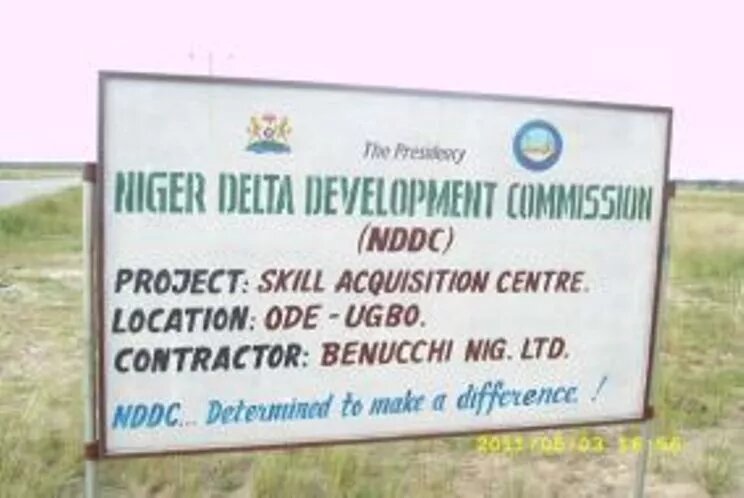
Down Load PDF
Local communities in Nigeria’s oil-rich Niger Delta have complained about lack of development projects in their area says a report commissioned by the Heinrich Boell Stiftung (hbs) in Nigeria.
“DESOPADEC has not done anything to improve our lives” says a resident of Iwhrekan community in Delta State.
The hbs report critically assesses the extent to which Oil and Gas Development commissions in the Niger Delta have been able to contribute to poverty reduction, livelihood improvement, and economic development in the region
Findings revealed that all the three oil and gas development commissions in Edo, Delta and Ondo states had fallen short of the expectations of the people of their host communities in terms of development of infrastructure.
The report states that the commissions are at present only able to make marginal positive contributions to the livelihood of the people. This was attributed to the commission’s interest in protecting the elites and politicians to the detriment of the people of oil producing communities who continue to have limited opportunities to participate in the activities of the commissions.
“There is limited consultation with the local communities because politicians have hijacked the commission. So consultation is almost zero”, says an official of DESOPADEC.
According to the report, the host communities which the oil development commissions are supposed to serve have been neglected as projects are imposed on them.
A resident of Ugboton community in Edo State says “there is no relationship with EDSOPADEC; if there is a relationship we will know who to cry to”.
“There is no real relationship between us and OSOPADEC. In fact, their area office in Igbokoba is merely for public relations to deceive people”, says an elder of Ugbo community in Ondo State.
All the commissions evaluated claimed they used town hall meetings, visit to oil producing communities, stakeholder forums, information from liaison officers in their area offices, information from host community associations and information from representatives of oil producing communities at the board to ascertain and prioritize community needs.
An official of OSOPADEC who spoke on condition of anonymity however says “while the commission has not scored 100 percent, but I am sure it has done better for the people in the mandate areas than the NDDC or the state government put together”.
The hbs report found out that a consensual perception shared by all the three oil and gas development commissions is that they are carrying on with their mandate as a grassroots-driven interventionist agency whose main responsibility is to engage in ‘quick fix’ development activities in the oil producing communities.
Oil producing communities and ex-board members have also continued to accuse the commissions of corrupt practices, says the report.
A former chairman of OSOPADEC recently accused his successor that “frivolous contracts were awarded to contractors that could not be traced, while the commission was also turned into a conduit pipe to siphon money into private accounts”.
“The due process is basically a tool for legalizing corruption. The adoption of due process is often to fulfill all righteousness, but it cannot fight corruption as people can always do what they want. Due process is good but it is not an effective tool to fight corruptions,” submits a resident of an oil producing community in Edo State.
Findings from the report suggest that the oil and gas commissions are at present only able to make marginal positive contributions to the livelihood of the people.
The report findings further revealed that though some community residents stated that the oil development commissions have contributed to the development of some areas, the large majority contacted during the research rated their performance as either poor or very poor.
The Heinrich Böll Stiftung in Nigeria with its core objectives of support for democracy, protection of human rights and facilitation of conflict prevention and management in Nigeria has through its civil society partners contributed to the debate on the resource curse in Nigeria.